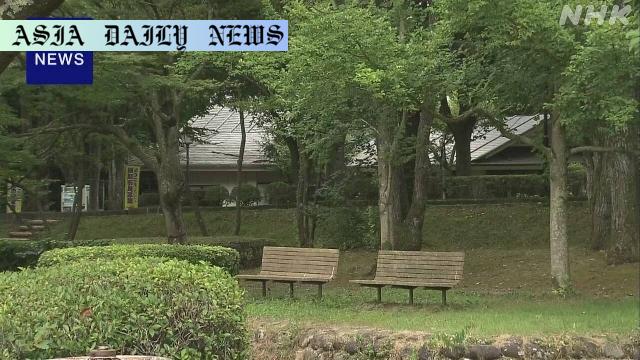Bear Encounter: A couple was attacked by a wild bear in Azuma Sports Park, Fukushima City, prompting safety measures and patrols.
Second wild bear encounter in one day in Fukushima City.
Man injured in Azuma Sports Park while saving his wife.
Early morning collision with a bear injured a delivery man.

Fukushima City Faces Two Wild Bear Encounters in One Day
On a seemingly ordinary Friday in Fukushima City, northeastern Japan, a series of incidents involving wild bears resulted in two injuries, stirring concern among residents and authorities alike. The day started with an alarming encounter when a newspaper delivery man collided with a bear while on his motorcycle near Azuma Sports Park. This left the individual with scratches and a story few could likely relate to. Later, reports of a second incident surfaced involving a couple walking in the very same park, which signaled the seriousness of animal-human conflicts in the area.
A Fateful Attack in Azuma Sports Park
Shortly before 11 a.m. on the same day, a couple strolling through Azuma Sports Park found themselves at the mercy of a wild bear. The animal initially approached the woman, but her husband’s courageous intervention redirected the beast’s wrath. Sustaining injuries on his left leg, the man in his 50s shouted to scare the animal, successfully deterring it from further aggression. The park, known for its serene atmosphere and popularity among locals, was promptly closed by the prefectural government to ensure public safety. This decision reflects their growing measures in response to bear-human encounters that have recently escalated across the region.
Heightened Measures and Patrolling Amid Growing Concerns
In light of these unsettling incidents, local authorities have heightened patrol measures around Azuma Sports Park and the surrounding neighborhoods, urging residents to practice caution. The recurring encounters with wild bears underline the necessity of preparedness and awareness campaigns targeting both locals and tourists who frequent these areas. The prefectural government is also teaming up with wildlife experts to track and minimize interactions with wild bears, ensuring human safety isn’t compromised. Such measures include educational programs, emergency hotlines, and possibly utilizing modern technologies like infrared cameras and wildlife tracking devices.



Commentary
Understanding the Risks of Wildlife Encounters
Encountering wildlife, especially predators like bears, is a stark reminder of the delicate balance between nature and human expansion. While efforts to protect wildlife are commendable, it’s equally essential for residents and visitors to remain vigilant, especially in regions where bear sightings are common. The recent incidents in Fukushima City highlight the unpredictability and danger of such encounters, especially in areas that often bridge the gap between rural wilderness and urban settings.
Need for Awareness and Preparedness
For communities in proximity to wildlife-prone areas, preparedness is key. Education campaigns about safe behaviors, such as avoiding areas where bears are frequently spotted or making noise to warn wildlife of human presence, can significantly reduce the risk of confrontation. Moreover, tools such as bear spray and emergency phone applications to report sightings are practical measures that local governments could promote. In Fukushima City’s case, the prompt closure of Azuma Sports Park demonstrates proactive governance aimed at prioritizing human safety.
Striking a Balance Between Conservation and Safety
While protecting endangered wildlife species, including bears, remains crucial from an ecological perspective, these incidents highlight the importance of integrated conservation and safety strategies. Installing bear-proof trash bins to deter animals from entering human settlements, creating buffer zones around urban areas, and increasing investment in tracking systems are steps that can harmonize the coexistence of humans and wild creatures. Fukushima’s recent incidents call for more such integrated efforts at both the local and national levels.